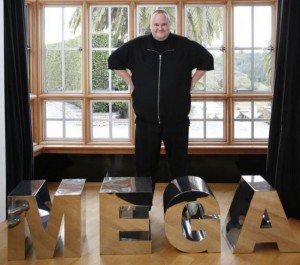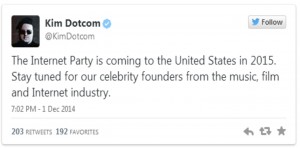 Worlds collided last week, in more ways than one. But these weren’t romantic or progressive or productive comminglings. They were destructive and divisive and deadly.
Worlds collided last week, in more ways than one. But these weren’t romantic or progressive or productive comminglings. They were destructive and divisive and deadly.
Art Basel is an international celebration of modern art, and its sojourn in Miami has helped cement the position of that often-troubled metropolis as a new cultural hub.
Which is admirable, but like all cultural institutions, Art Basel can’t be accused of being all-inclusive. So maybe it’s a coincidence, or maybe it’s indicative—either way it’s chilling, and it must mean something that midway through this year’s festivities a Miami artist (or was he a criminal?) was killed. 
Delbert Rodriguez Gutierrez, a street artist with the tag “DEMZ,” was struck by an unmarked Miami police car in the early morning hours of December 5th. He died from severe head trauma four days later.
He was a lifetime removed from Art Basel, I’d argue, for the same reason that his art brought on his death. He operated in a furtive world, with his mode of creation proscribed, interdicted, policed. When the spotlight fell on him, he ran. At some point, somehow, he ran in front of a police car. And that was that.
In collisions like these, especially of late, there’s a reflexive need to assign blame. So the tragedy, in the minds of many, became an assault. Another assault.
Look. I wasn’t there. Just like I wasn’t in Ferguson or Staten Island or Cleveland. Chances are, neither were you. None of us can say with any certainty what happened, in any of these cases. But that doesn’t stop many of us—too many—from expressing certainty, on one side or the other.
The reason why, I think, is conflation. We’re melding deaths together. Thus, Trayvon becomes Tamir and Eric and Michael…and now, by extension, Delbert Rodriguez Gutierrez. Their names and faces and stories are melded together—into fuel. Fuel for anger.
Is that a proper, or even understandable, reaction? I don’t think so. Because it denies them something that all of them, and all of us, deserve both in life and in death: individuality. No one’s life or death should devolve into merely a statistic, even though that’s what largely seems to happen. By holding these deaths up as examples of a deplorable trend, whether that’s true or not, individuality is erased.
Trayvon died differently than Michael and Eric. Tamir’s death was not Delbert’s.
I certainly don’t regret a dialogue, if we can have one rationally, about policing and use of force, and about the very much unfinished business of racial equality. And if any sector of our society, whomever they may be, are especially victimized, then I fully support their right, their duty, to vehemently protest.
Still—I think it’s a disservice, the final and maybe the worst one, to decide on scant evidence that all of these things are like the others. Much has been declared (with the usual imprecision of declarative statements) about Ferguson and Cleveland and Staten Island. I’ll leave those be.
With equal risk of imprecision I’ll say this about Miami, and about DEMZ, and about the police officer who was behind the wheel: I think it was a tragic accident. I think the officer was doing his job, and that never in a million years would he have wanted things to turn out the way they did.
The same can probably be said for DEMZ. He was doing his job, or more accurately, following his vocation. But setting aside elevated examples like Banksy, that particular vocation is illegal. It is–usually–denounced and  unwanted by the property owners who supply the canvases. Those property owners look to the police for relief. Police officers are individuals too, and it’s probably safe to say they have a gamut of opinions on street art or on graffiti. But whether they see beauty or they see vandalism, they’re expected to do their job.
unwanted by the property owners who supply the canvases. Those property owners look to the police for relief. Police officers are individuals too, and it’s probably safe to say they have a gamut of opinions on street art or on graffiti. But whether they see beauty or they see vandalism, they’re expected to do their job.
The tragedy is that this conflict, this collision, led to the death of a very young, very talented artist. And tempted though I am to draw some kind of just-let-art-be-art conclusion from it all, I recognize that in doing so I’d be just as guilty of the same sort of conflation that I indicted just a few paragraphs ago. And I’d be stretching for answers where I honestly have none.
So there’s simply this, and maybe it smacks likewise of conflation but maybe that’s unavoidable in the end: Worlds collide. They just do.
Any or all of our worlds are dangerous enough on their own. When they collide? Casualties are inevitable.
 of attention.
of attention. day-to-day view reveals little more than benefit. Zoom out a bit and an entirely different picture emerges.
day-to-day view reveals little more than benefit. Zoom out a bit and an entirely different picture emerges. voluminous and ubiquitous for decades now, and yet it has changed very little.
voluminous and ubiquitous for decades now, and yet it has changed very little.
 As Ann Curry
As Ann Curry  By now you’ve seen the dress, and no doubt have debated the dress. You have weighed in with your opinion—an objective truth, surely, from your point of view—and have questioned the sanity of anyone seeing anything else. You’ve probably even delved into the
By now you’ve seen the dress, and no doubt have debated the dress. You have weighed in with your opinion—an objective truth, surely, from your point of view—and have questioned the sanity of anyone seeing anything else. You’ve probably even delved into the  Amazon continues its quest to corner the content market, most recently in the guise of
Amazon continues its quest to corner the content market, most recently in the guise of  musicians and personalities associated with the New York Symphony Orchestra, as both a red-hot, controversial conductor, and a relatively obscure young oboist, simultaneously take on new and challenging
musicians and personalities associated with the New York Symphony Orchestra, as both a red-hot, controversial conductor, and a relatively obscure young oboist, simultaneously take on new and challenging  roles. If that sounds a little dry, then take heart in knowing that all throughout, the show more than lives up to the source-book’s subtitle: Sex, drugs, and classical music.
roles. If that sounds a little dry, then take heart in knowing that all throughout, the show more than lives up to the source-book’s subtitle: Sex, drugs, and classical music. place in the present day, and only hints at the challenges faced by orchestras in staying culturally relevant, Tindall’s book spans the seventies, eighties and nineties, and is liberally peppered with not just personal anecdotes, but also first-class reporting—facts and figures—supporting a dire thesis warning us that classical music, presented as a municipal non-profit, might be a losing proposition. Spend a bit of time
place in the present day, and only hints at the challenges faced by orchestras in staying culturally relevant, Tindall’s book spans the seventies, eighties and nineties, and is liberally peppered with not just personal anecdotes, but also first-class reporting—facts and figures—supporting a dire thesis warning us that classical music, presented as a municipal non-profit, might be a losing proposition. Spend a bit of time  Both explanations are plausible, that’s the most doleful aspect of the
Both explanations are plausible, that’s the most doleful aspect of the  Ever seen Casablanca? Unless you’ve just rewatched it there’s a very good chance you clearly remember Rick grumbling “Play it again, Sam“…even though that line is
Ever seen Casablanca? Unless you’ve just rewatched it there’s a very good chance you clearly remember Rick grumbling “Play it again, Sam“…even though that line is  Today is going to be a strange, bittersweet day here at Deconstruction Central. For it’s going to be a day without football.
Today is going to be a strange, bittersweet day here at Deconstruction Central. For it’s going to be a day without football. In the end this reluctant divorce is as much about nostalgia as it is disgust. Yes, I feel an ethical cringe over the degradation of values in the football establishment. But equally, I’m haunted by a profound sense of loss for the sort of game that was long gone, probably, well before I was born.
In the end this reluctant divorce is as much about nostalgia as it is disgust. Yes, I feel an ethical cringe over the degradation of values in the football establishment. But equally, I’m haunted by a profound sense of loss for the sort of game that was long gone, probably, well before I was born. We’re all individually responsible for our own transgressions. But we’re collectively responsible for the downfall that always comes when we set people on a pedestal, and they inevitably transgress.
We’re all individually responsible for our own transgressions. But we’re collectively responsible for the downfall that always comes when we set people on a pedestal, and they inevitably transgress. Sure, you have your doubts. But what if he’s right?
Sure, you have your doubts. But what if he’s right? Busch claims personal knowledge of numerous hits successfully completed by his cold-as-ice ex, including missions in Africa, and Central and South America. He also recounts a trip to El Paso during which Driscoll left their hotel in camos, and returned in a blood-spattered evening gown.
Busch claims personal knowledge of numerous hits successfully completed by his cold-as-ice ex, including missions in Africa, and Central and South America. He also recounts a trip to El Paso during which Driscoll left their hotel in camos, and returned in a blood-spattered evening gown. centered in a very steady set of crosshairs. And let that be a lesson to us all: when and if we learn our SOs are professional murderers, we should keep that shit to ourselves.
centered in a very steady set of crosshairs. And let that be a lesson to us all: when and if we learn our SOs are professional murderers, we should keep that shit to ourselves. If there can be any solace in the horrific attack on the Paris offices of the weekly magazine,
If there can be any solace in the horrific attack on the Paris offices of the weekly magazine,  Congrats and hat’s off to pioneering video artist
Congrats and hat’s off to pioneering video artist  human experiences. Also notable is the recurring theme of natural elements, with a startling emphasis on water and immersion. Only speculating here, but this could very well be a constant reliving of a near-drowning incident from his
human experiences. Also notable is the recurring theme of natural elements, with a startling emphasis on water and immersion. Only speculating here, but this could very well be a constant reliving of a near-drowning incident from his youth, which took him to what he
youth, which took him to what he  Perception is reality. That’s a mantra that I wallow in daily, using it as both a business/marketing lever, and as a psychological anchor. It reminds me that, for good or ill, our world and our positions in it are largely self-created.
Perception is reality. That’s a mantra that I wallow in daily, using it as both a business/marketing lever, and as a psychological anchor. It reminds me that, for good or ill, our world and our positions in it are largely self-created. problems
problems

 and of blazing a trail toward uncomfortable truths and unexpected solutions. May that ever be so.
and of blazing a trail toward uncomfortable truths and unexpected solutions. May that ever be so. One truly amazing and original voice went silent today. Joe Cocker
One truly amazing and original voice went silent today. Joe Cocker  which his persona was once captured and recreated by the equally incomparable
which his persona was once captured and recreated by the equally incomparable  Worlds collided last week, in more ways than one. But these weren’t romantic or progressive or productive comminglings. They were destructive and divisive and deadly.
Worlds collided last week, in more ways than one. But these weren’t romantic or progressive or productive comminglings. They were destructive and divisive and deadly.
 unwanted by the property owners who supply the canvases. Those property owners look to the police for relief. Police officers are individuals too, and it’s probably safe to say they have a gamut of opinions on street art or on graffiti. But whether they see beauty or they see vandalism, they’re expected to do their job.
unwanted by the property owners who supply the canvases. Those property owners look to the police for relief. Police officers are individuals too, and it’s probably safe to say they have a gamut of opinions on street art or on graffiti. But whether they see beauty or they see vandalism, they’re expected to do their job. Looks like one of the most outsized and out-spoken figures from the gray-hat worlds of file-sharing and internet entrepreneurship plans on insinuating himself into the already-bloated milieu of American politics. Being that
Looks like one of the most outsized and out-spoken figures from the gray-hat worlds of file-sharing and internet entrepreneurship plans on insinuating himself into the already-bloated milieu of American politics. Being that  Megaupload’s wide-eyed defense that it merely provided a platform and had no control over what files members were sharing, did little to dissuade the FBI from pursuing Megaupload and Kim Dotcom right ’round the globe. The U.S. Justice Department engineered the
Megaupload’s wide-eyed defense that it merely provided a platform and had no control over what files members were sharing, did little to dissuade the FBI from pursuing Megaupload and Kim Dotcom right ’round the globe. The U.S. Justice Department engineered the  That’s probably understandable, given the movement’s youth. The most natural strategy would be to grow those grassroots, to allow the party membership and leadership to mature, and to take the slow route to political relevance.
That’s probably understandable, given the movement’s youth. The most natural strategy would be to grow those grassroots, to allow the party membership and leadership to mature, and to take the slow route to political relevance. 
 doesn’t mean I consider him iniquitous, or even especially criminal. And it doesn’t mean I can’t take his political efforts seriously.
doesn’t mean I consider him iniquitous, or even especially criminal. And it doesn’t mean I can’t take his political efforts seriously.